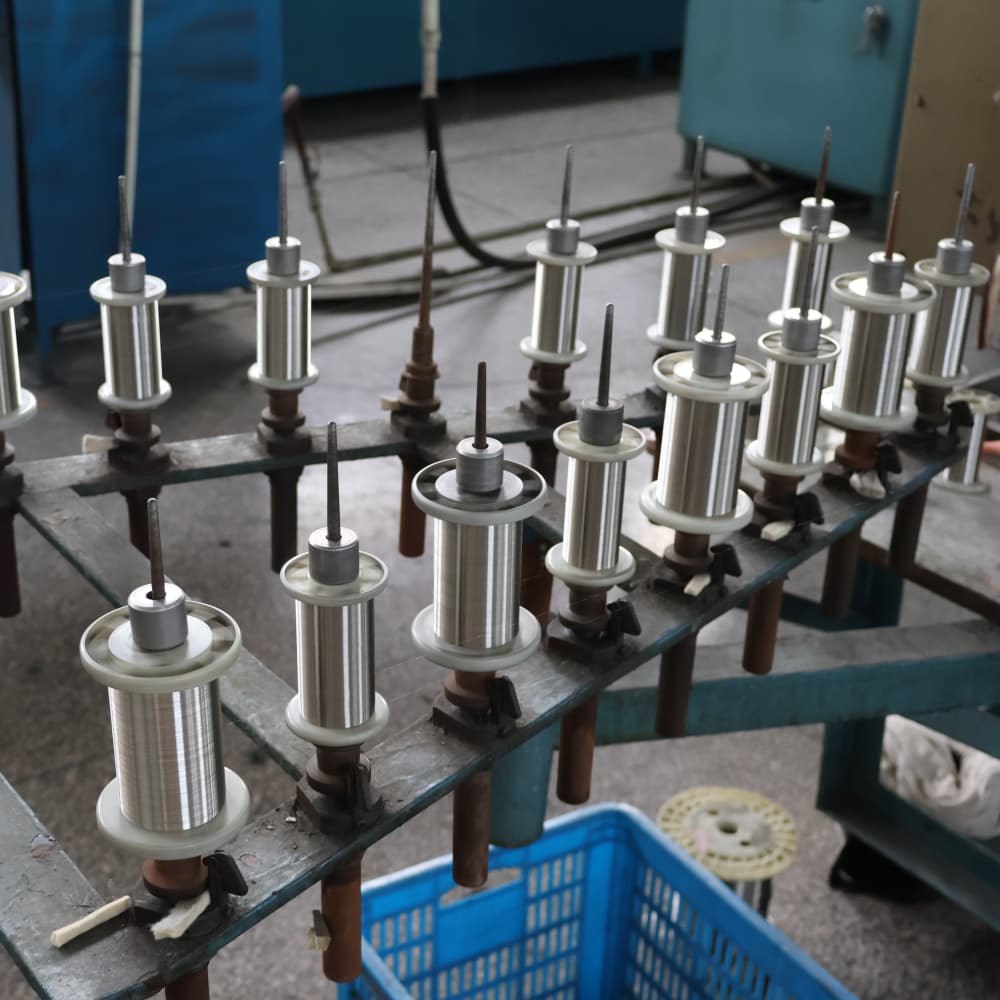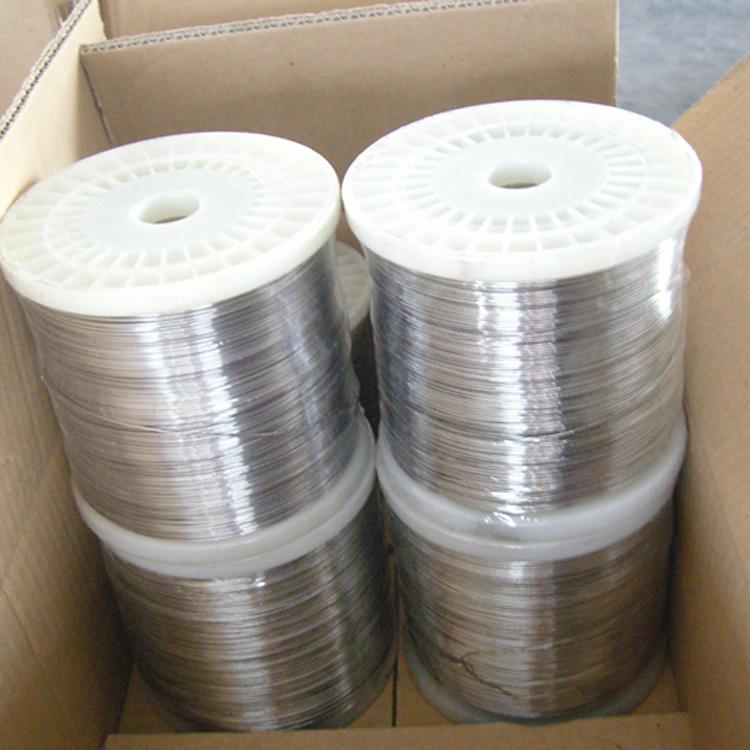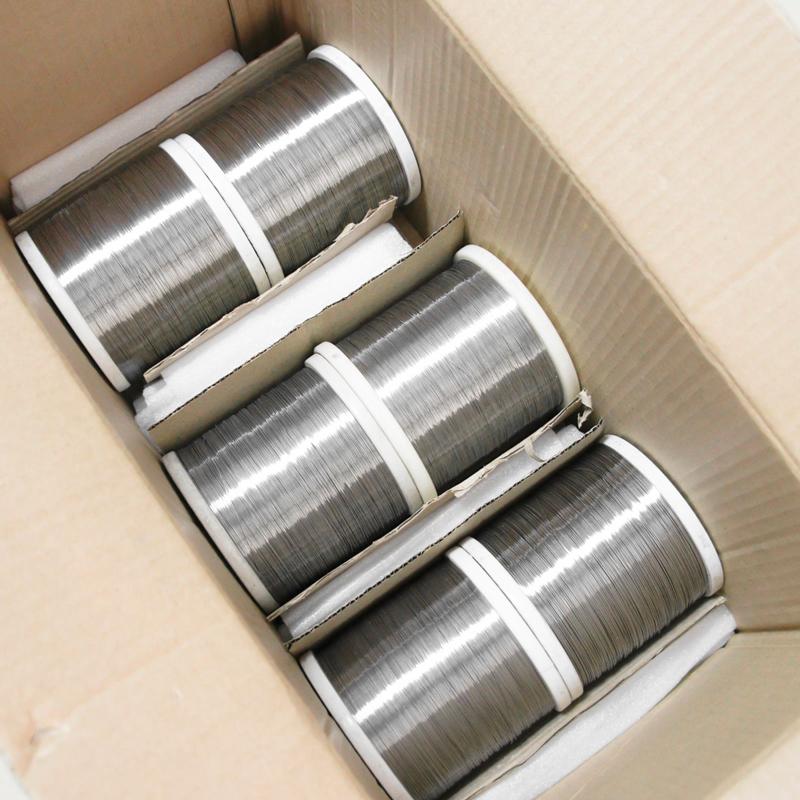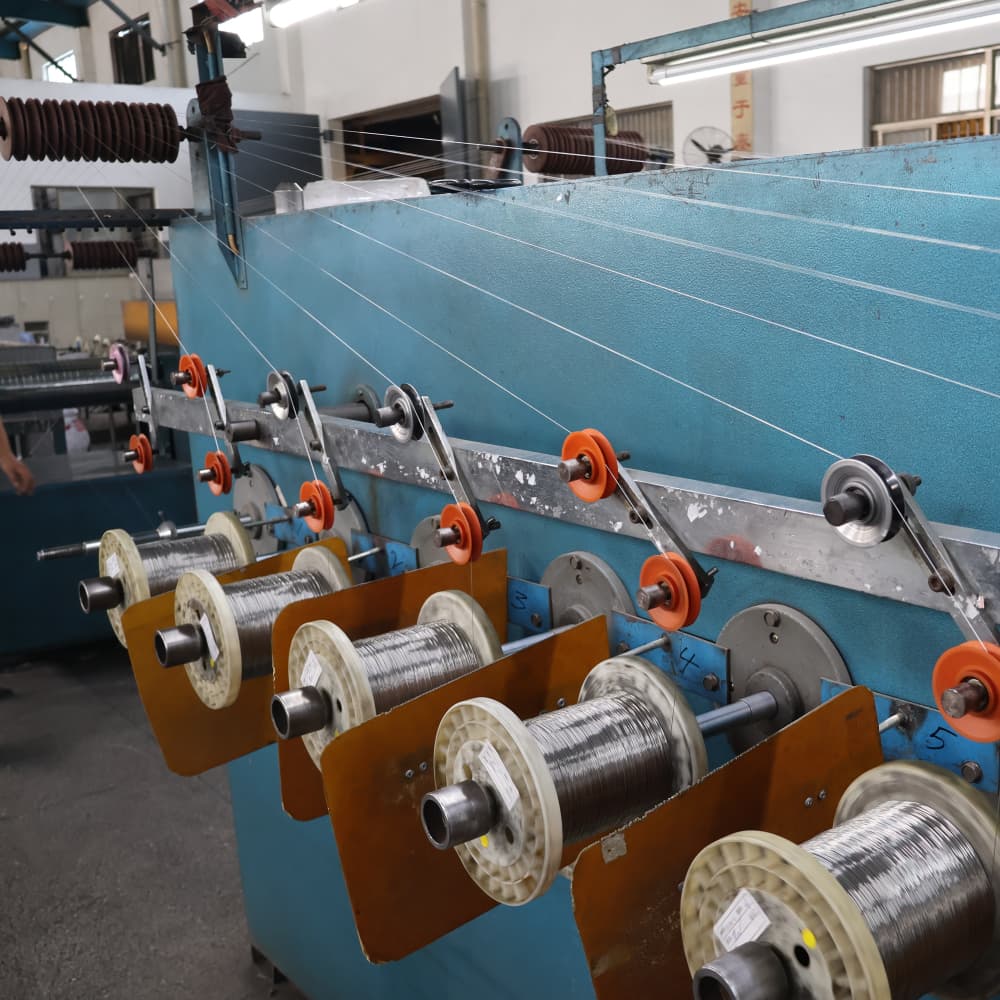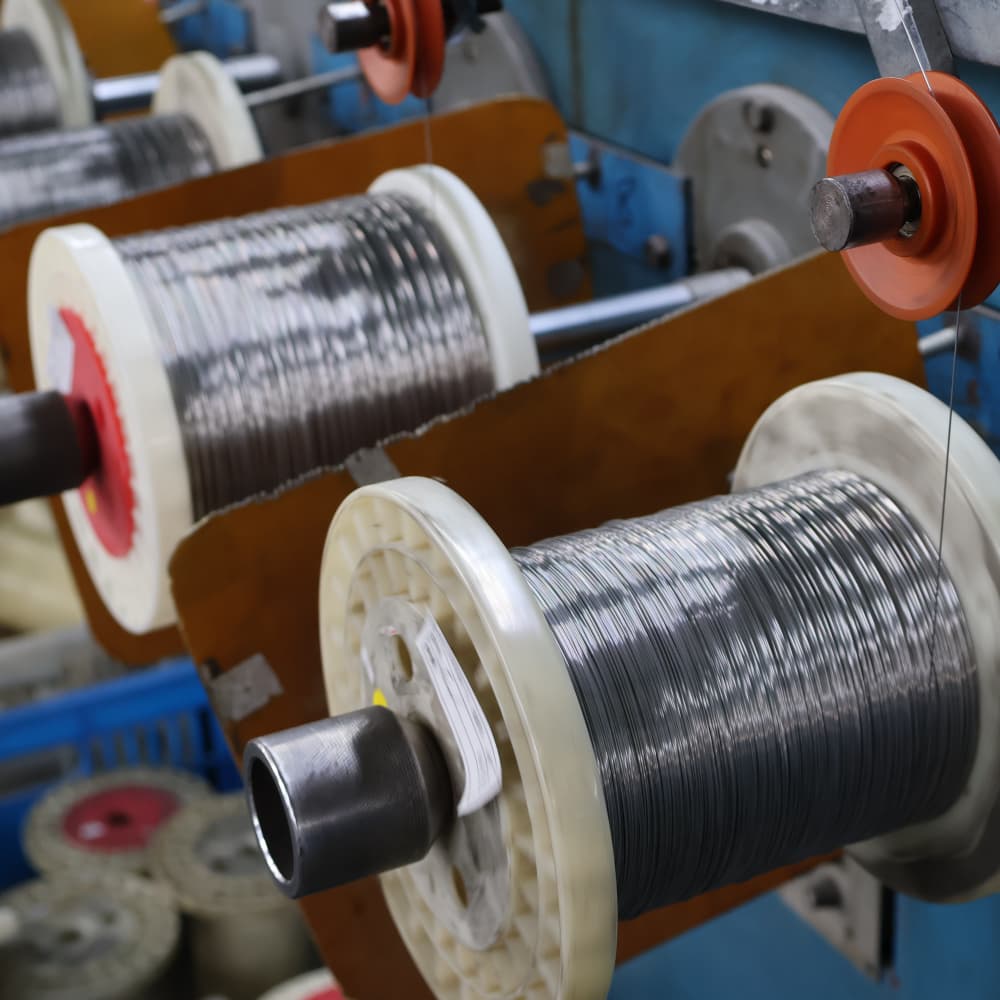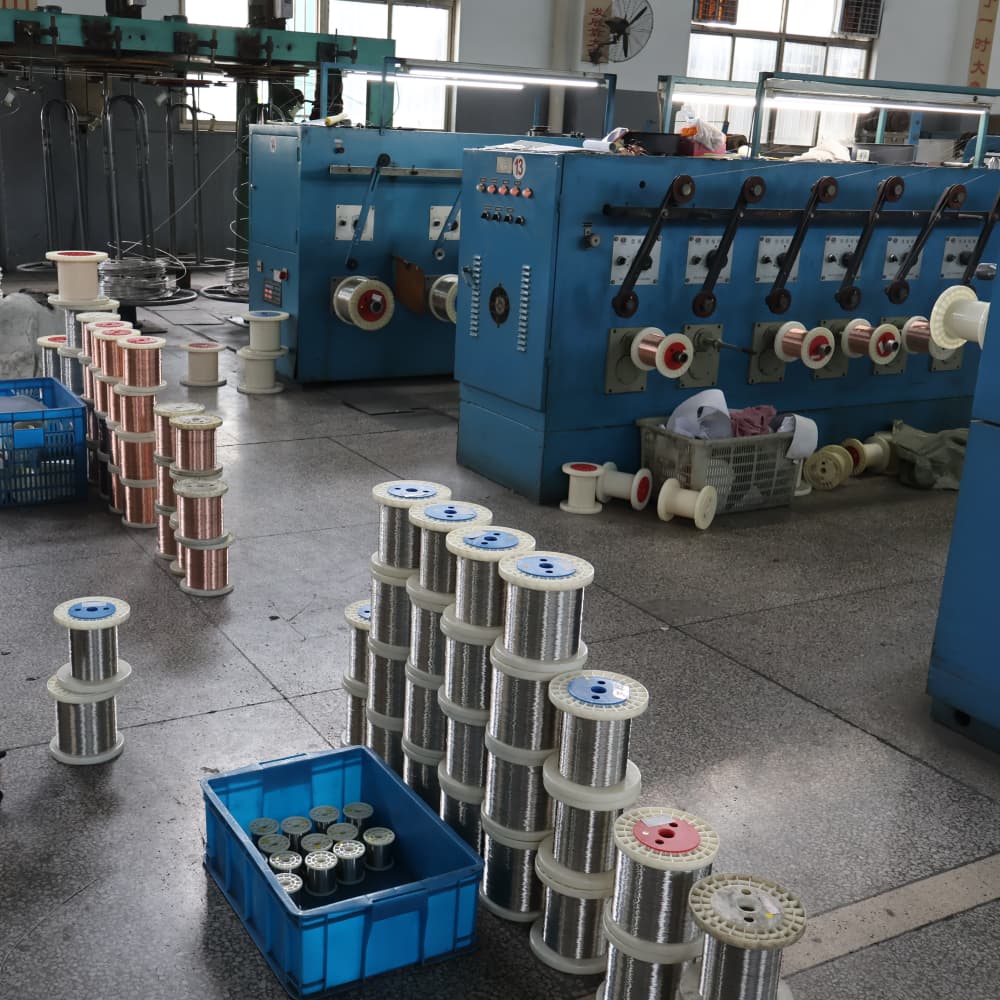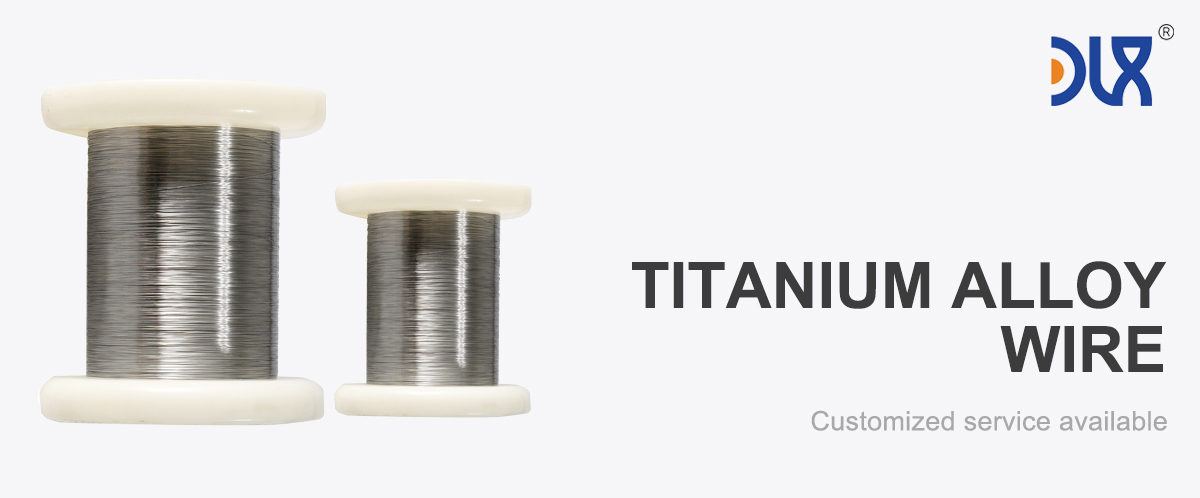
Our Titanium Alloy wire is the go-to choice for high-temperature aerospace components, delivering the strength, heat resistance, and lightweight properties that the industry demands. Available in Grade 5 (Ti-6Al-4V with 6% aluminum and 4% vanadium) and Grade 9 (Ti-3Al-2.5V with 3% aluminum and 2.5% vanadium), this wire meets ASTM B863 and AMS 4928 standards, ensuring top-tier quality. It’s perfect for jet engine parts, fasteners, and structural components in aircraft and spacecraft.
We offer diameters from 0.1mm to 10mm, in coils, spools, or custom-cut lengths to suit your manufacturing needs. Grade 5 brings unmatched strength for high-stress parts, while Grade 9 offers excellent formability for complex components. Both grades resist corrosion and handle temperatures up to 600°F (316°C), making them ideal for the extreme conditions of aerospace environments. Whether you’re building turbine blades or lightweight fasteners, our titanium alloy wire delivers performance you can trust.
Our titanium alloy wire is a powerhouse for high-temperature aerospace applications. Grade 5’s tensile strength of 900-1000 MPa outshines Grade 9 (620-860 MPa) and 17-4PH stainless steel (760-930 MPa), making it perfect for demanding parts like engine compressor blades. Grade 9, with its high formability, is ideal for intricate components like brackets or conduits. Both grades are far lighter than stainless steel (4.43-4.48 g/cm³ vs. 7.8 g/cm³), reducing aircraft weight and boosting fuel efficiency.
Corrosion resistance is a big win, as our wire stands up to harsh aerospace environments, including high-altitude moisture and chemical exposure, unlike stainless steel, which can corrode over time. Both grades handle temperatures up to 600°F (316°C), ensuring stability in hot engine environments. Grade 5 is less ductile, requiring our advanced machining techniques, but Grade 9’s cold-formability makes it a breeze to shape. Weldability is strong with TIG methods, producing durable joints for critical aerospace parts.
| Titanium (Ti) | Aluminum (Al) | Vanadium (V) | Tin (Sn) | |
| Ti-6Al-4V | Rest | 5.5%-6.8% | 3.5%-4.5% | |
| Ti-5Al-2.5Sn | Rest | 4.5%-5.5% | 2.0%-3.0% |
Physical Properties
| Density | 4.4-4.5g/cm³ |
| Melting Point | 1660°C |
| Coefficient of Thermal Expansion | 8-10×10⁻⁶/K (20°C-500°C) |
| Thermal Conductivity | 6-22 W/(m·K) (depending on alloy grade) |
| Electrical Resistivity | 0.14-0.17 μΩ·m |
| Tensile Strength | 600-1200 MPa (depending on alloy grade) |
| Yield Strength | 480-1100 MPa |
| Elongation at Break | 10%-25% |
| Hardness | 200-400 HB |

For more details, pls directly contact us.
The aerospace industry is soaring, and our titanium alloy wire is along for the ride. With global air travel rebounding and space exploration expanding—think reusable rockets and lunar missions—the demand for lightweight, heat-resistant materials is skyrocketing. Titanium’s high strength-to-weight ratio and ability to withstand extreme temperatures make it a top choice for next-gen aircraft and spacecraft. The push for fuel efficiency is driving manufacturers to reduce weight, and our wire helps achieve that without sacrificing durability.
Additive manufacturing is transforming aerospace, enabling complex, lightweight parts with less waste. Our titanium alloy wire is 3D-printing-ready, supporting innovative designs like optimized engine components or custom fasteners. Sustainability is another key trend, with the industry seeking materials that reduce fuel consumption and environmental impact. Our wire’s lightweight properties and recyclability align perfectly with these goals.
Cost is a challenge, as titanium alloys are pricier than stainless steel due to complex production. But advancements in the Kroll process and titanium recycling are making it more affordable, and our efficient manufacturing keeps prices competitive. The rise of urban air mobility, like eVTOL vehicles, and commercial space ventures is also boosting demand for high-performance materials, and our wire is ready to meet these needs.
Applications of Titanium Alloy Wire
Our titanium alloy wire is a workhorse in high-temperature aerospace applications. Grade 5 is ideal for jet engine components like compressor blades, turbine discs, and fasteners, where its strength and heat resistance shine. Grade 9, with its formability, is perfect for complex structural parts like conduit systems or lightweight brackets. Both grades are used in airframes and spacecraft for components that need to withstand high temperatures and corrosive environments.
Beyond aerospace, our wire finds use in medical applications for biocompatible implants, in marine industries for corrosion-resistant fittings, and in high-performance automotive for lightweight parts. But in aerospace, this wire truly excels, enabling components that are strong, lightweight, and built to handle the extreme conditions of flight and space exploration.
Company Advantages: Why Choose Us
When it comes to titanium alloy wire, we’re the ones to trust. Our decades of expertise in titanium production mean we deliver wire that meets ASTM B863 and AMS 4928 standards with unmatched consistency. Every batch is tested for composition, strength, and surface quality, ensuring it performs flawlessly in high-temperature aerospace applications. We use state-of-the-art facilities to produce wire that’s strong, weldable, and ready for your toughest projects.
Flexibility is a huge part of our advantage. Need a specific diameter or custom length? We tailor our wire to your specs. Our just-in-time supply chain delivers exactly what you need, when you need it, keeping your costs down. We’re also ahead of the curve on trends like additive manufacturing and sustainable production, investing in R&D to ensure our wire supports the future of aerospace innovation.
Our technical support team is always on hand, whether you’re selecting the right grade or optimizing a manufacturing process. We keep prices competitive by streamlining production and sourcing high-quality raw materials, so you get premium wire without the premium price tag. Our commitment to sustainability means we’re adopting greener methods, aligning with the industry’s eco-friendly push. Choosing our titanium alloy wire means choosing a partner dedicated to quality, innovation, and your success.
Comparison Parameters Table
|
Parameter |
Grade 5 Titanium Wire (Ti-6Al-4V) |
Grade 9 Titanium Wire (Ti-3Al-2.5V) |
17-4PH Stainless Steel Wire |
|---|---|---|---|
|
Composition |
6% Al, 4% V, 90% Ti |
3% Al, 2.5% V, 94.5% Ti |
Fe, 15-17% Cr, 3-5% Ni, 3-5% Cu |
|
Tensile Strength |
900-1000 MPa |
620-860 MPa |
760-930 MPa |
|
Yield Strength |
~830 MPa |
~550 MPa |
~620 MPa |
|
Density |
4.43 g/cm³ |
4.48 g/cm³ |
7.8 g/cm³ |
|
Corrosion Resistance |
Excellent (seawater, chemicals) |
Excellent (seawater, chemicals) |
Good (prone to corrosion) |
|
Heat Resistance |
Up to 600°F (316°C) |
Up to 600°F (316°C) |
Up to 600°F (316°C) |
|
Formability |
Moderate (less ductile) |
High (cold-formable) |
Moderate |
|
Weldability |
Good (inert gas needed) |
Excellent (TIG) |
Good |
|
Applications |
Aerospace, medical, marine |
Aerospace, medical, cycling |
Aerospace, industrial |
|
Cost |
Higher (alloyed) |
Moderate |
Lower |
The future for titanium alloy wire in aerospace is looking sky-high. As demand for fuel-efficient aircraft and reusable spacecraft grows, lightweight, heat-resistant materials like ours will be in high demand. The rise of urban air mobility and commercial space exploration will drive the need for high-performance components, and our wire is ready to deliver. Additive manufacturing will continue to open new possibilities, from 3D-printed engine parts to custom structural components, and our wire is poised to support these advancements.
Sustainability will remain a key focus, and our eco-friendly production methods will keep us ahead of the game. With aerospace manufacturers prioritizing energy efficiency and reduced emissions, our wire’s lightweight properties and recyclability will be a big draw. Whether it’s a next-gen jet or a lunar lander, our titanium alloy wire is set to power the future of aerospace engineering.
Conclusion
Our titanium alloy wire is the ultimate choice for high-temperature aerospace components, offering unmatched strength, heat resistance, and lightweight properties. From jet engine parts to spacecraft fasteners, it delivers performance you can count on in extreme conditions. With industry trends leaning toward sustainability and innovation, our wire is ready to shape the future of aerospace. Backed by our expertise, flexible production, and commitment to quality, choosing our titanium alloy wire means choosing a partner built for success in the skies and beyond.
For more details, pls directly contact us.
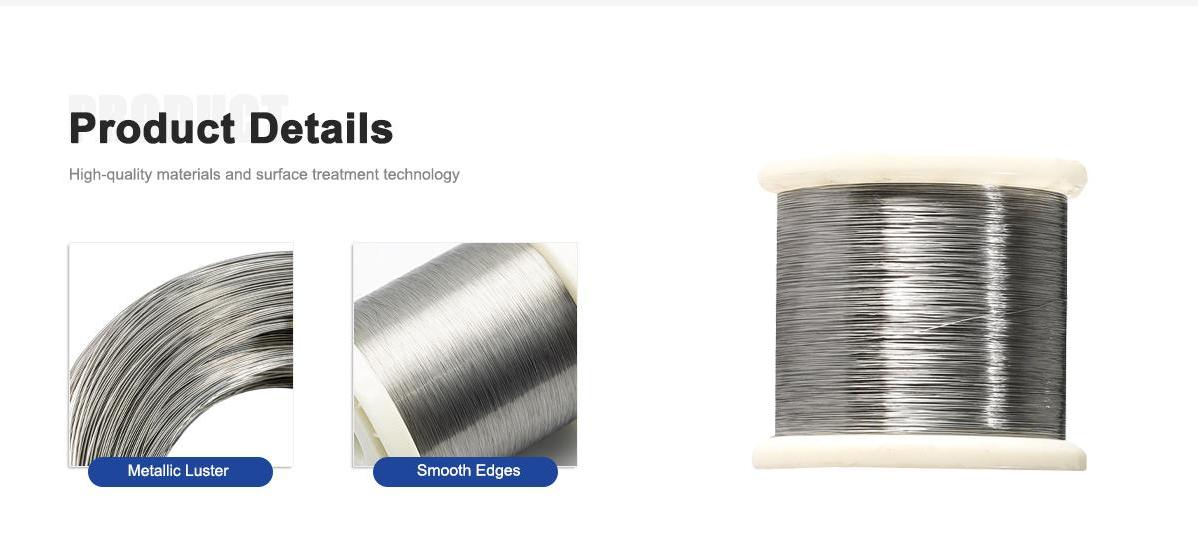
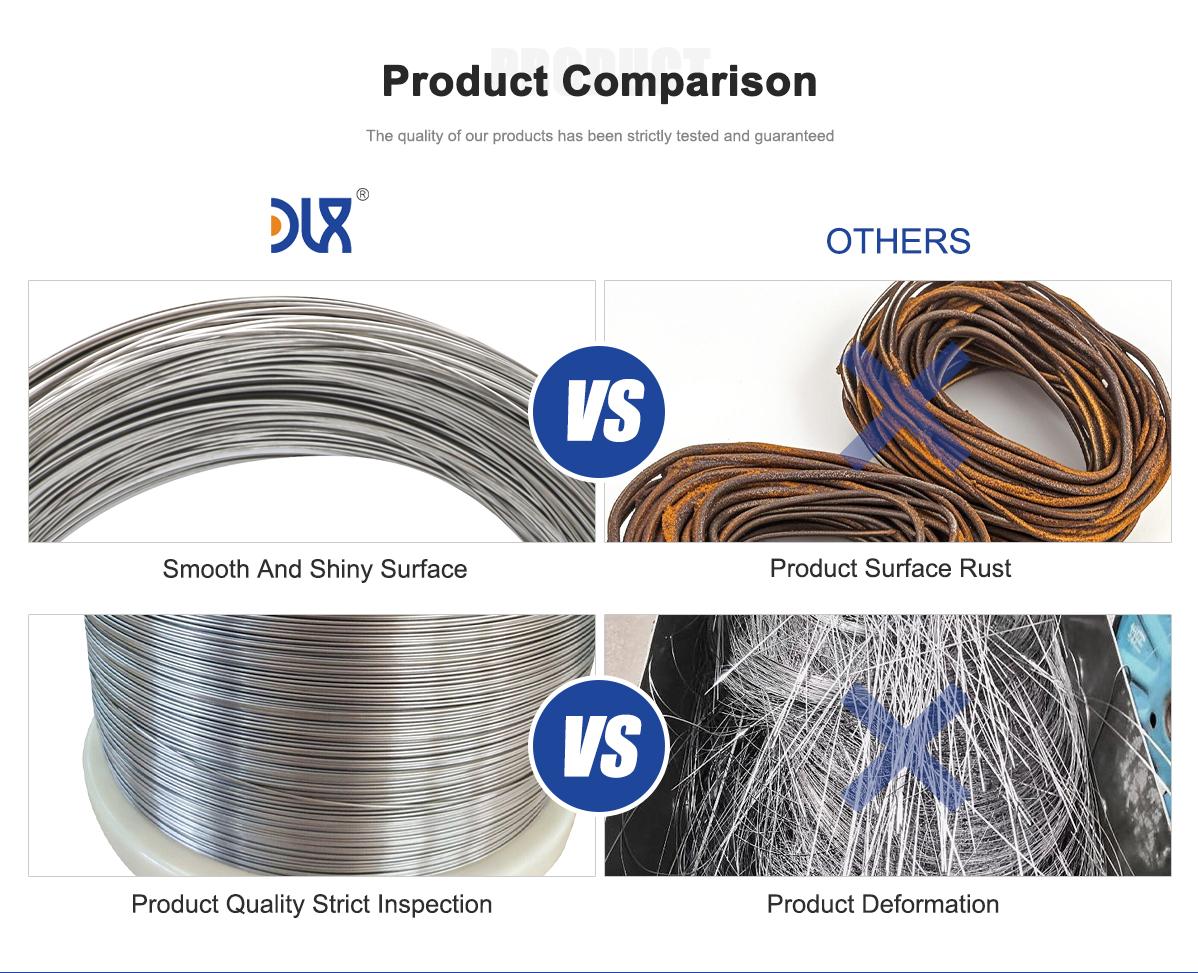
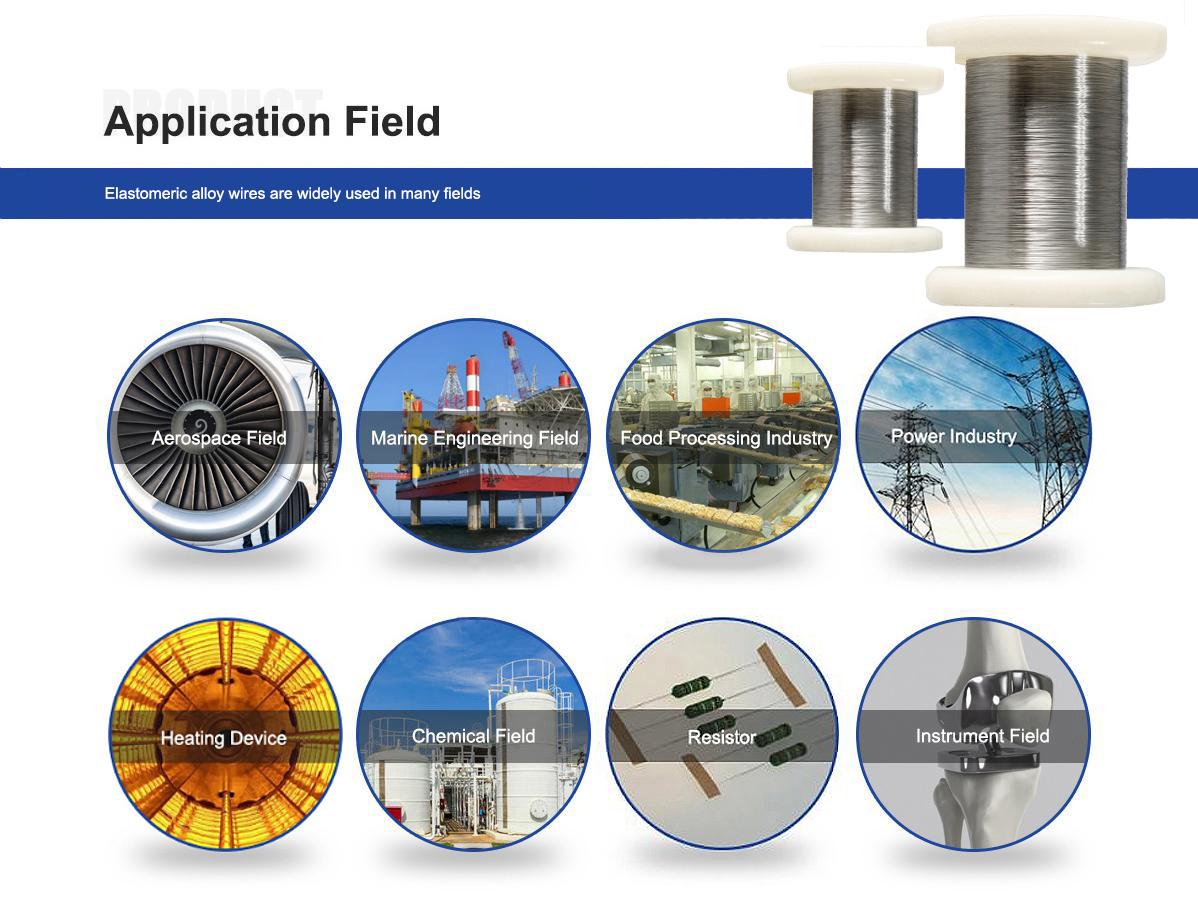
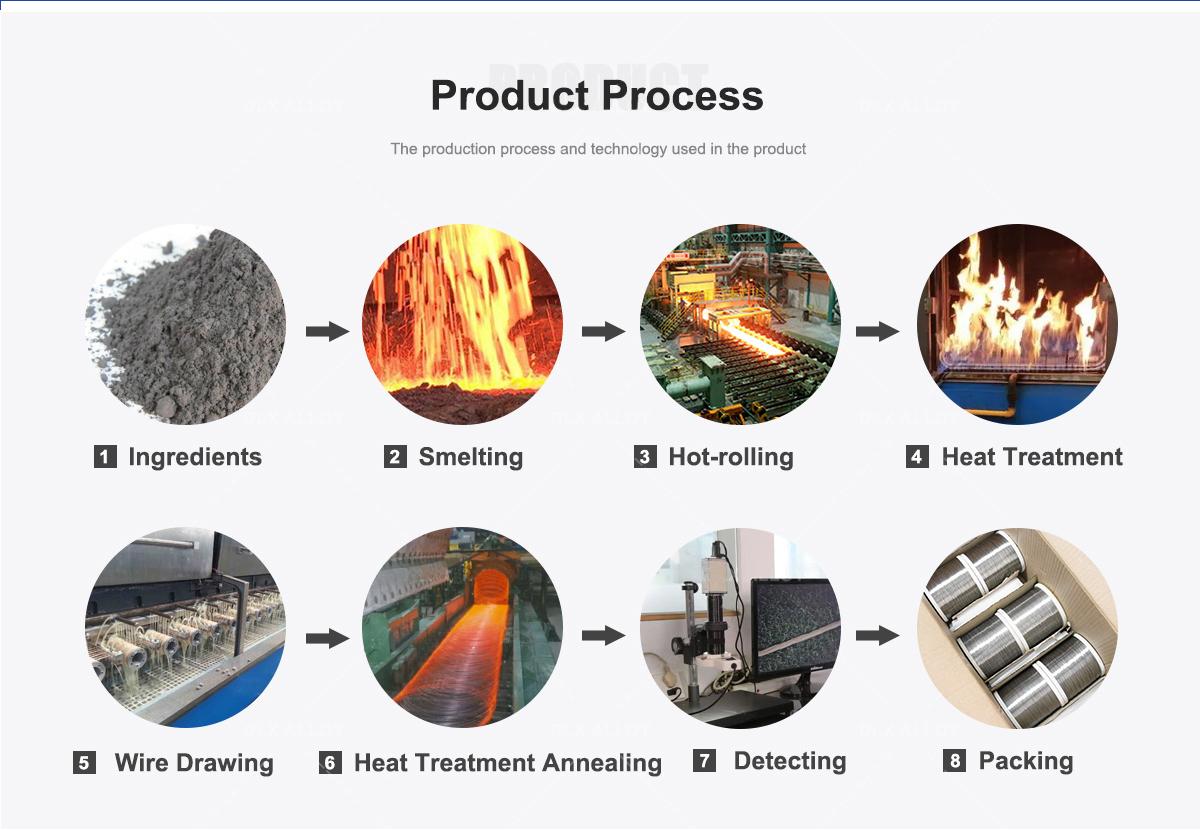
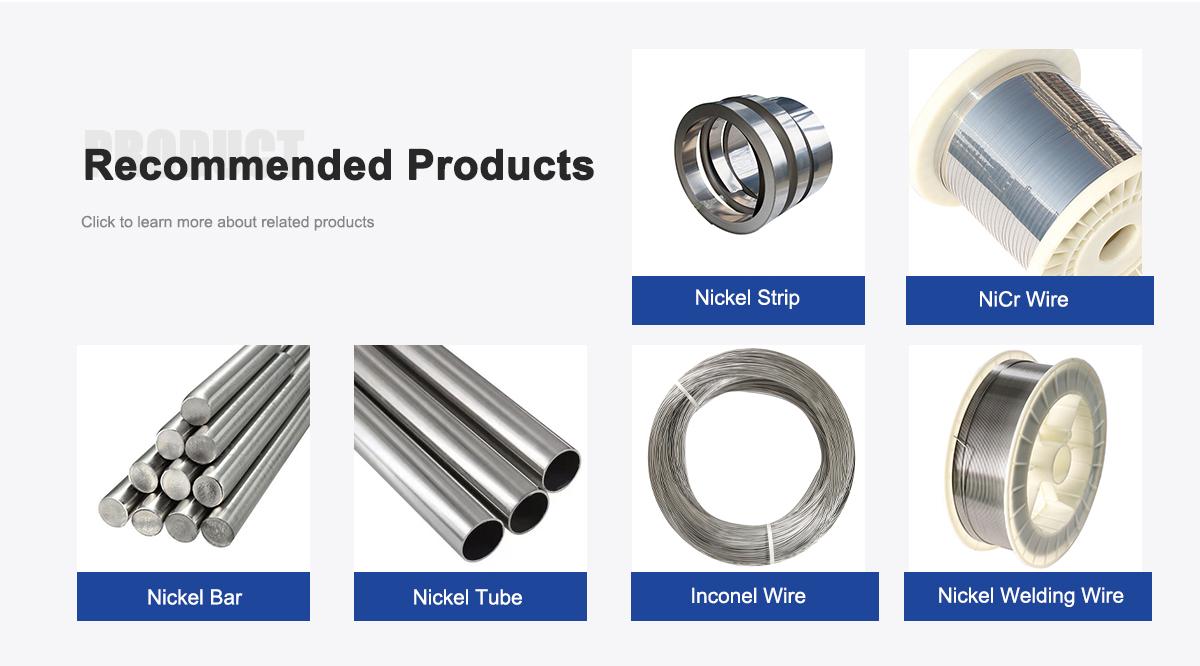
About Us:
Our 12,000㎡ factory is equipped with complete capabilities for research, production, testing, and packaging. We strictly adhere to ISO 9001 standards in our production processes, with an annual output of 1,200 tons. This ensures that we meet both quantity and quality demands. Furthermore, all products undergo rigorous simulated environment testing including high temperature, high pressure, and corrosion tests before being dispatched, ensuring they meet customer specifications.
For all our clients, we offer timely and multilingual after-sales support and technical consulting, helping you resolve any issues swiftly and efficiently.
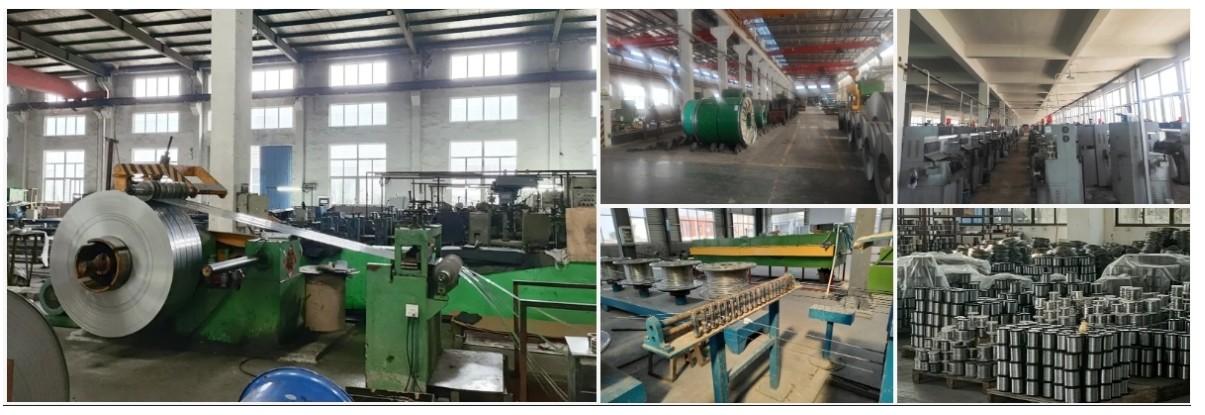
Client Visits
Building Stronger Partnerships
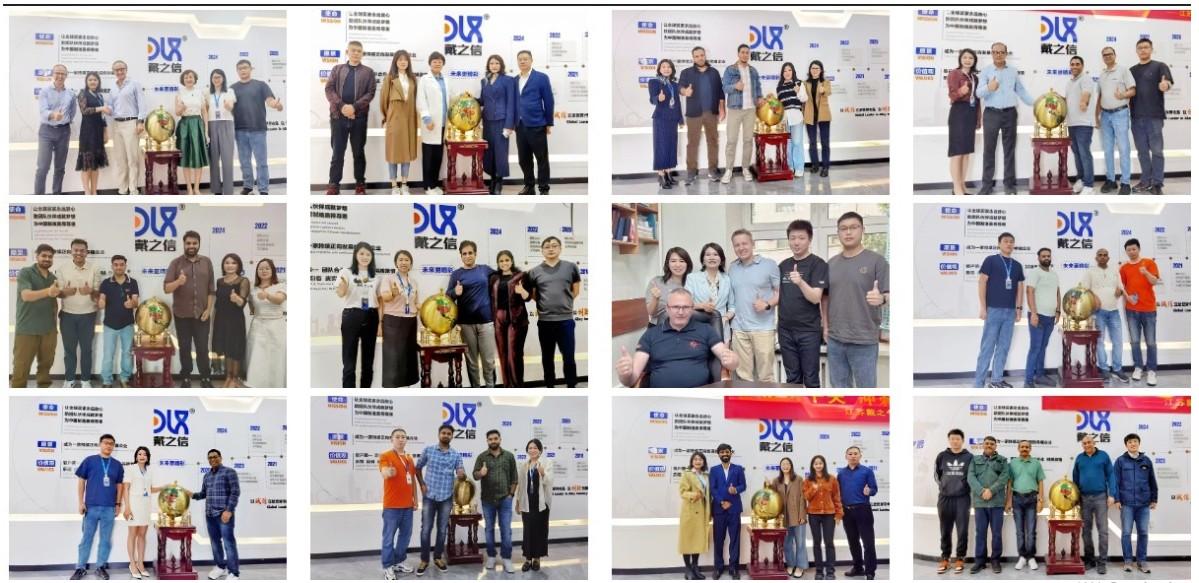
We support all kinds of testing:
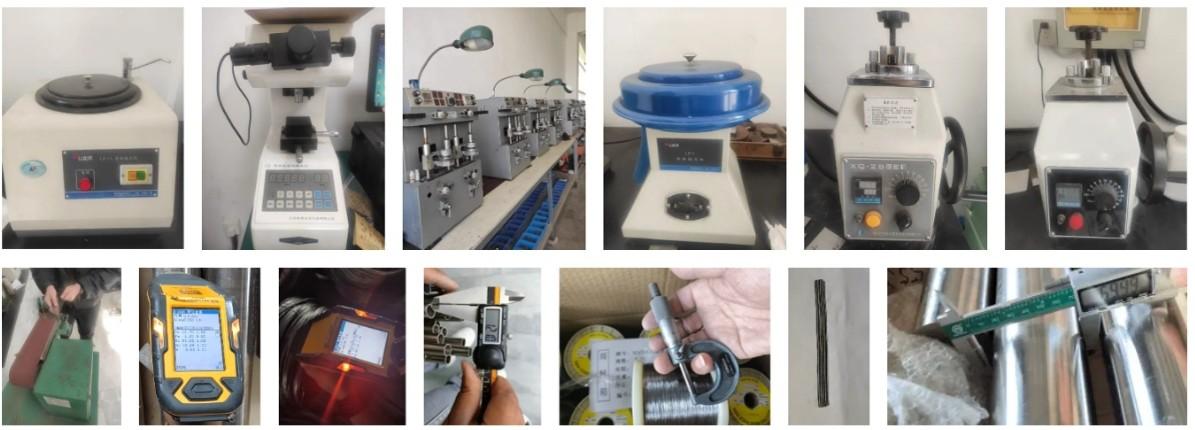

FAQs:
-
What is titanium alloy wire for high-temperature aerospace components made of?
It’s primarily Grade 5 (Ti-6Al-4V) with 6% aluminum and 4% vanadium, or Grade 9 (Ti-3Al-2.5V), offering high strength and heat resistance. -
What are the main uses of titanium alloy wire in aerospace?
It’s used for engine components, fasteners, and structural parts in aircraft and spacecraft that require heat resistance and lightweight properties. -
How does titanium alloy wire compare to stainless steel for aerospace applications?
Titanium alloy wire is lighter, stronger, and more corrosion-resistant than stainless steel, with better performance in high-temperature environments. -
Can titanium alloy wire withstand extreme aerospace temperatures?
Yes, Grade 5 and Grade 9 handle temperatures up to 600°F (316°C), ideal for jet engines and high-heat aerospace components. -
Is titanium alloy wire weldable for aerospace manufacturing?
Absolutely, it’s weldable with TIG methods and inert gas shielding, creating strong, heat-resistant joints for aerospace parts. -
What industries besides aerospace use titanium alloy wire?
It’s used in medical, marine, and automotive industries for its strength, corrosion resistance, and lightweight properties. -
How does titanium alloy wire contribute to aerospace efficiency?
Its low density (4.43-4.48 g/cm³) reduces aircraft weight, improving fuel efficiency and performance in high-temperature conditions. -
What are the industry trends for titanium alloy wire in aerospace?
Demand is growing for lightweight, heat-resistant materials in aerospace, with trends toward additive manufacturing and sustainable production.

